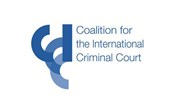SCL lecture: Prosecuting Administrative Detention as International Crimes?
13 November 2019- Starts at: 19:00h
- Venue: T.M.C. Asser Instituut
- Organiser: T.M.C. Asser Instituut, Grotius Centre for International Legal Studies & Coalition for the International Criminal Court.
-
Address:
R.J. Schimmelpennincklaan 20-22
2517 JN The Hague
Netherlands - Register
Prosecuting Administrative Detention as International Crimes?
A Case Study of the Situation in the Occupied Palestinian Territories
The state practice of administrative detention – the deprivation of liberty of adults and children without a determination of guilt through formal, criminal proceedings – has become increasingly widespread and common. The absence of procedural protections and guarantees are coupled, in many instances, with harsh, punitive and degrading conditions of detention. Preventive detention measures that entail the suspension of habeas corpus not only enable law enforcement authorities to use arbitrary, excessive force, but also affect the erosion of absolute, non-derogable rights.
The panel addresses the occurrence of such detention practices in public emergency and armed conflict situations. It focuses on a recently released report on Israel’s law and practice of administrative detention, which is distinguished by permitting the routine resort to this form of preventive and often politically framed (group) punishment in the context of the longest military occupation in modern time. As a central element in Israel’s military governance of the Palestinian population, administrative detention is a system of exclusion and oppression that inflicts grave human suffering on a certain population group, and thus arguably merits an international criminal justice response. This potential recourse does not however sit well with the absence of an explicit prohibition on such systems and the indeterminacy of the relevant rules of international humanitarian law and international human rights law that have enabled the legal justification of such practices by States.
Panelists
- Dr Peter Langford, Senior Lecturer in Law, Edge Hill University
- Dr Triestino Mariniello, Senior Lecturer in Law, Edge Hill University
- Dr Valentina Azarova, Visiting Fellow, Manchester International Law Centre and Senior Legal Advisor, Global Legal Action Network (GLAN)
- Dr Hanne Cuyckens, Assistant Professor, Leiden University College.
Organisers
This lecture is organised by the T.M.C. Asser Instituut, the Grotius Centre for International Legal Studies and the Coalition for the International Criminal Court.
The views and opinions expressed in this announcement and in or during the Supranational Criminal Law lectures are not necessarily those of the host and/or participating organisations, namely the T.M.C. Asser Instituut, the Grotius Centre for International Legal Studies of Leiden University and the Coalition for the International Criminal Court.



